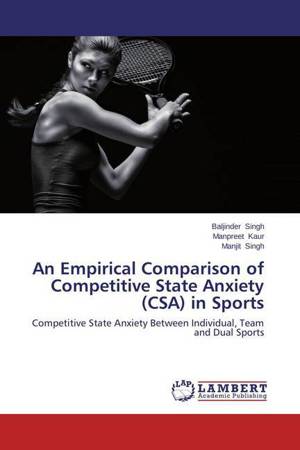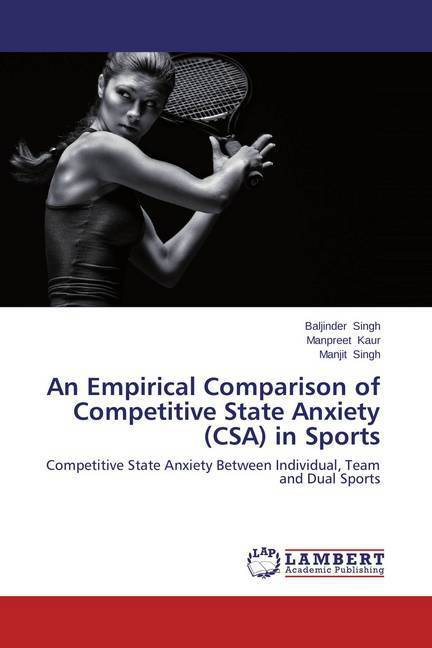
- Afhalen na 1 uur in een winkel met voorraad
- Gratis thuislevering in België vanaf € 30
- Ruim aanbod met 7 miljoen producten
- Afhalen na 1 uur in een winkel met voorraad
- Gratis thuislevering in België vanaf € 30
- Ruim aanbod met 7 miljoen producten
Zoeken
An Empirical Comparison of Competitive State Anxiety (CSA) in Sports
Competitive State Anxiety Between Individual, Team and Dual Sports
Baljinder Singh, Manpreet Kaur, Manjit Singh
Paperback | Engels
€ 61,95
+ 123 punten
Omschrijving
Performance based on open skills may be more influenced by anxiety and self-confidence than performance based on closed skills. An open skill can involve either an individual or team sport with the athlete per- forming in an interactive and ever-changing environment (basketball, tennis). A closed skill is performed in a more stable environment that is relatively predictable and often self-paced (i.e., golf, gymnastics, crew teams). Anxiety may have a different impact on performance on these two types of skills, based on how the influence of the environment and other competitors potentially moderate the anxiety/performance relationship. Evidence from the literature on precompetitive mood and performance suggests that the more an athlete interacts with an opponent, the more likely the opponent's actions or performance will exert an influence on the relationship be- tween mood and performance. As there is more contact with the opponent in open skill sports, therefore one could predict that anxiety would have a more detrimental effect on performance in open skill sports than in closed skill sports, due to the greater interaction with opponents and less control over the environment.
Specificaties
Betrokkenen
- Auteur(s):
- Uitgeverij:
Inhoud
- Aantal bladzijden:
- 96
- Taal:
- Engels
Eigenschappen
- Productcode (EAN):
- 9783659629204
- Verschijningsdatum:
- 5/11/2014
- Uitvoering:
- Paperback
- Afmetingen:
- 150 mm x 220 mm
- Gewicht:
- 156 g

Alleen bij Standaard Boekhandel
+ 123 punten op je klantenkaart van Standaard Boekhandel
Beoordelingen
We publiceren alleen reviews die voldoen aan de voorwaarden voor reviews. Bekijk onze voorwaarden voor reviews.







